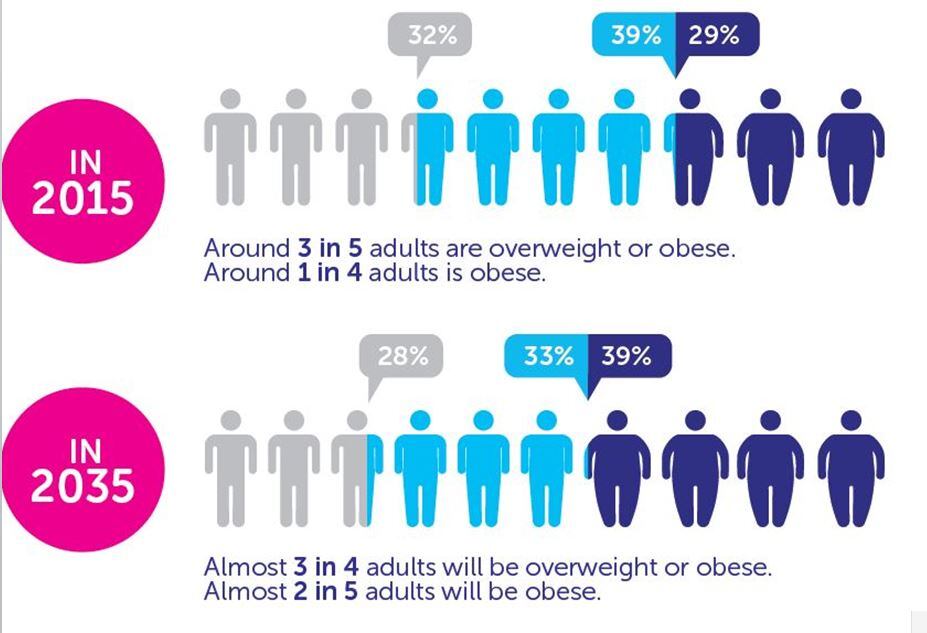Crucially, it says, these huge costs are avoidable and if there were a 1% year-on-year fall in overweight and obesity prevalence between now and 2015, around 77,000 cases of disease could be avoided.
Overweight is defined as having a body mass index (BMI), the ratio of height to weight of an individual, of between 25 and 29.9. People with a BMI of 30 and over are considered obese.
This includes 45,000 incidences of type 2 diabetes as well as thousands of cases of coronary heart disease, stroke and obesity-related disease.
The report, entitled ‘Tipping the scales: Why preventing obesity makes economic sense’, also points out that obesity affects the poorest in society: almost half of women (49%) from the lowest income bracket are predicted to be obese by 2035, it says.
Paul Lincoln, chief executive officer at the UK Health Forum, said the report makes "a very clear economic case" for immediate action to turn the tide of obesity. "The government’s planned childhood obesity strategy is a golden opportunity to tackle the availability, affordability and promotion of unhealthy foods that is driving the current crisis in children’s diets. This must become part of a broader national action plan on diet and health for the whole population.”
Susan Jebb, professor of diet and population health at the University of Oxford, said: “There is growing awareness of the links between obesity and diabetes or heart disease, but the links to cancer are less well recognised. Most people know that smoking causes cancer, but fortunately, most people in the UK now don’t smoke and for them, managing their weight is the

single most important thing they can do to reduce their risk of cancer.”
The report’s authors used a computer model to input the latest available demographic, disease and health cost data, producing estimates of the costs and disease incidence of obesity.
In 2007 a UK government Foresight report estimated the costs of overweight and obesity to the National Health Service (NHS) to be £4.2 billion (€5.7bn) in 2007 and predicted it could rise to £9.7 billion (€13bn) by 2050.
